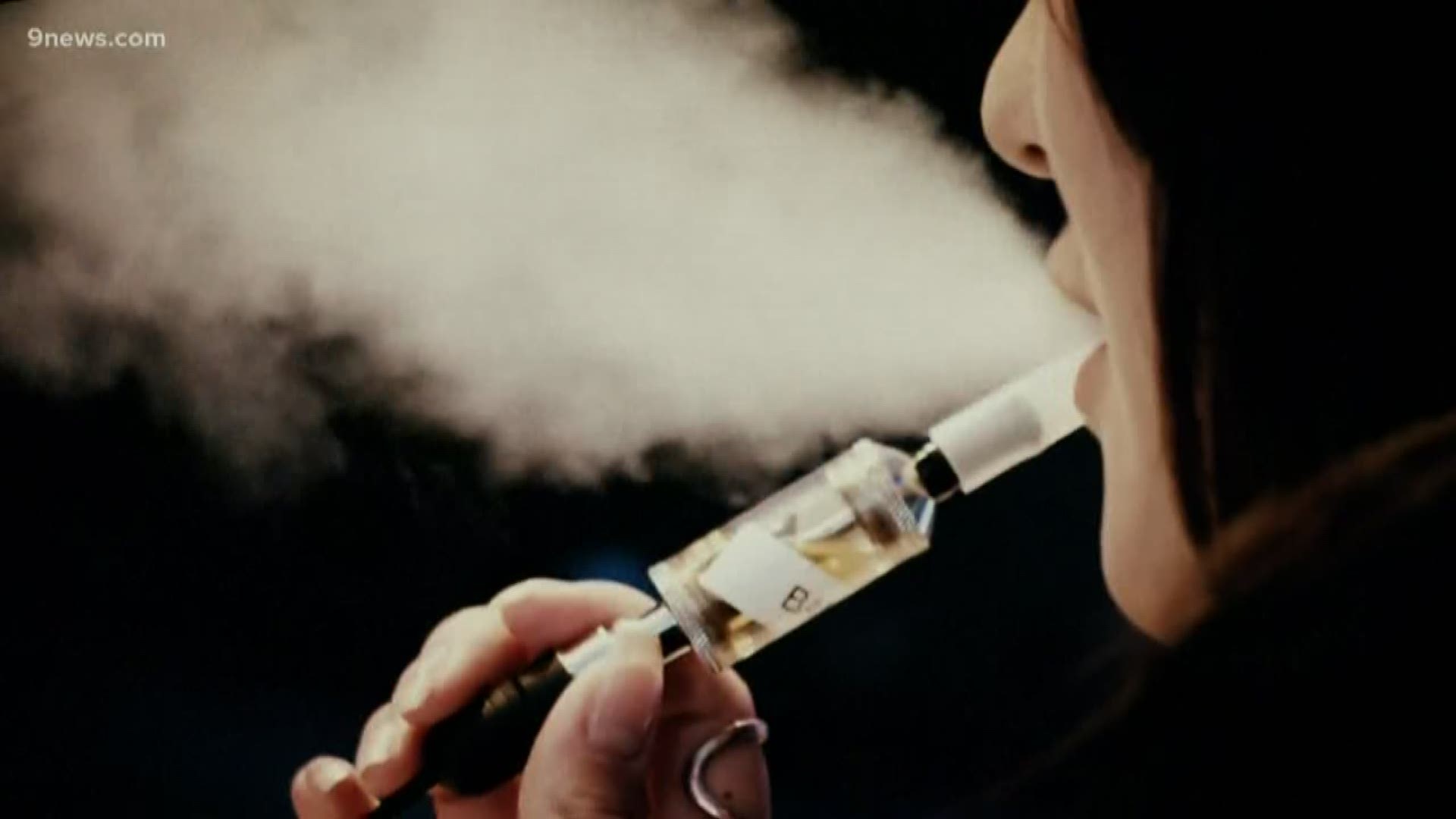DENVER — As cities across Colorado consider new rules and laws regulating tobacco products, there's an unexpected warning.
Boulder's City Council will vote this week on a plan to ban flavored e-cigarettes and ask the voters to approve a sales tax increase on vaping products that would still be considered legal.
Rich Marianos, a retired assistant director with the Federal Bureau of Alcohol, Tobacco and Firearms warned those decisions come with consequences. He said, without proper resources, Boulder could face a new black market.
"What has time told us," Marianos said. "When we put in a prohibition, we create crime, just like when we tried to instill the Volstead Act into illegal alcohol in the 20s and 30s."
Last week, Boulder City Council finalized a plan to ban flavored e-cigarettes as well as raise the age to buy tobacco and nicotine products to 21. They also agreed to let voters approve of a 40% sales tax on the remaining legal vaping products.
Marianos warned the combination of these proposals would create a black market.
"An example could be they were going to Colorado Springs where the taxes may be lower and then bringing them to Boulder and sell them at a higher rate," Marianos said.
He called cigarette trafficking "the new face of organized crime." He also said terrorist organizations use it to fund their illegal operations and moves like these would require law enforcement to do more with less.
"You’ll have to have code inspectors employed, you’ll have to use ordinance inspectors, you’ll have to pay them wages, benefits," Marianos said. "And you’ll be taxing on your current resources and having to add on more to investigate what is going on in your black market."
Marianos said criminals consider cigarette trafficking a crime with little risk and great reward. He said there are "more than thousands and thousands of instances worldwide where this is becoming a problem that’s out of hand."
Without proper resources, cities forced to follow the new regulations will inevitably face this new black market, Marianos said.
"It isn't a situation of, 'Well, maybe,' or, 'What if,'" he said. "It will -- and that's the scariest part."
Marianos said you also have to consider how much money cities like this could lose.
"Because they won't get taxes," Marianos said. "New York has over 60 percent of their cigarettes coming from other places. So, they've completely lost all the revenue there."
SUGGESTED VIDEOS | Local stories from 9NEWS

